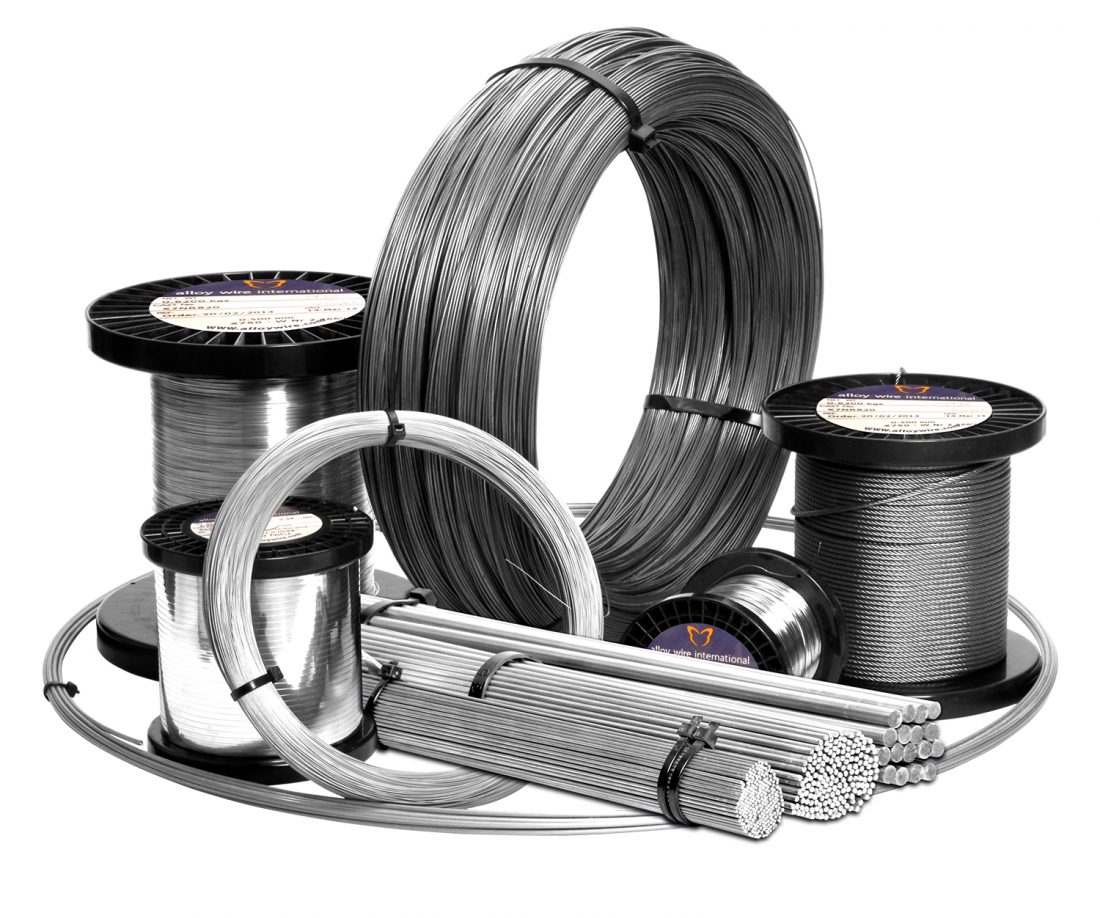
Nitronic** 60
Nitronic 60 is an anti-galling and wear resistant stainless steel. Additions of Silicon and Manganese have given this alloy the ability to prevent wear and galling. Nitronic 60 is also known as Alloy 218 and HPA 50.
New Alloy: Inconel® 617 is now available from Alloy Wire. Learn about Inconel® 617


Nitronic 60 is an anti-galling and wear resistant stainless steel. Additions of Silicon and Manganese have given this alloy the ability to prevent wear and galling. Nitronic 60 is also known as Alloy 218 and HPA 50.

Nitronic 50 exhibits corrosion resistance and that is superior to type 316 Stainless Steel. It has good mechanical properties at ambient and sub-zero temperatures. Unlike other austenitic stainless steels, it does not become magnetic when cold worked or cooled to sub-zero temperatures. Nitronic 50 is therefore considered for applications in the oil & gas, offshore, chemical and marine industries. Nitronic 50 is also known as Aquamet 2, Aquamet 22, and Temet 25.

Duplex stainless steels are magnetic and are far more corrosion resistant than more commonly used stainless grades, i.e. 302 and 316. Super Duplex combines aspects of both austenitic and ferritic grades, and is known for its excellent corrosion resistance and high strength. Super Duplex is also known as Alloy 32750 and SAF 2507.

Duplex stainless steels are magnetic and are far more corrosion resistant than more commonly used stainless grades, i.e. 302 and 316. Duplex is characterised by its high yield strength, as well as good fatigue strength and excellent corrosion resistance. Duplex is also known as Duplex 2205 and Cronifer 2205 LCN.

A high purity grade of Nickel that is made by powder metallurgy, Nickel® 270 contains 99.95% Nickel in addition to traces of minor elements including Iron, Carbon and Copper. It has a low base hardness and high ductility, with its purity levels making it ideal for applications such as hydrogen thyratrons and electrical resistance thermometers. Nickel® 270 is also known as HPM 270 Nickel.

Nickel® 212 is Nickel strengthened with an addition of Manganese. A good thermal conductor with high corrosion resistance, Nickel® 212 is used for electrical and electronic applications such as lead wires, as well as components such as electrodes in lamps.

Nickel® 205 is similar to Nickel® 200, but has compositional adjustments to enhance its performance in electrical and electronic applications. Nickel® 205 exhibits exceptional mechanical, electrical and corrosion-resistant properties, as well as good oxidation resistance. Nickel® 205 is also known as VDM Nickel 99.6.

A commercially pure Nickel (typically 99.6% Nickel), Nickel 201 is essentially the same as Nickel 200, but with a lower carbon content to prevent embrittlement by inter granular carbon at temperatures over 315°C (600°F). Lower carbon content also reduces hardness, which makes it ideally suited for spinning and cold forming. It is also preferred to Nickel 200 for applications involving exposure to temperatures above 315°C (600°F). Nickel® 201 is also known as Phyweld 201.

Nickel® 200 is commercially pure and has good mechanical properties and excellent corrosion resistance to alkalis i.e. Sodium hydroxide. It also has good electrical, thermal and magneto-strictive properties. The corrosion resistance of Nickel® 200 means it is suited to products in food handling, synthetic fibres, and caustic alkalis. Other applications include aerospace components, electrical and electronic parts, and chemical shipping drums. Nickel® 200 is also known as Phyweld 200.

A Nickel-Iron-Cobalt, controlled expansion alloy containing nominally 29% Nickel and 17% Cobalt. Its coefficient of expansion (which decreases with rising temperature to the inflection point), matches the expansion rate of borosilicate glasses and alumina ceramics. Nilo® K is also known as Kovar, Dilver, and Pernifer 2918.

Nilo® 52 was designed for use with a variety of soft glasses. It is known for its almost constant coefficient of thermal expansion up to approx. 565°C (1050°F). Nilo® 52’s low thermal expansion properties make it suitable for electronic applications, notably within the telecommunications industry. Nilo® 52 is also known as Invar 52, Pernifer 50, and Glass Sealing 52

A Nickel-Iron, controlled expansion alloy containing 48% Nickel. Its coefficient of thermal expansion was designed to match that of soft lead and soda-lime glasses. This alloy also has a high inflection point. Nilo® 48 is often used in industrial thermostat rods up to 450°C (840°F) and for glass-to-metal seals in a number of applications, which may include radio valves and electric lamps. Nilo® 48 is also known as Invar 48 and Magnifer 50.